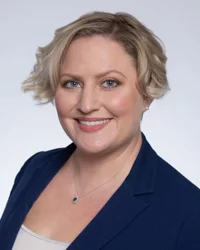One of the farthest reaching and most litigated effects of SB899 is the alteration of the Panel Qualified Medical Evaluator process. No longer are the days of the “dueling doctors” who were replaced by what soon came to be known as the “QME dance,” both terms calling to mind equally ridiculous cartoonish scenarios of colleagues in white coats (though the latter scene sounding far more civilized). Labor Code §4062 set forth the steps of the dance, with one party objecting, or at least giving the pretense of an objection, to the treating report in order to gain access to the coveted PQME panel. In practice, however, it seems to be rarely enforced that the party issuing said objection be held to it, each party regressing to its most favorable position at the completion of the process.
There has been much litigation as to who has the right to choose the appropriate specialty of a PQME panel (never mind the fact that this is the only opportunity for defendants to obtain a medical-legal opinion aside from initial Medical Provider Network consultations, usually prior to the injured worker’s representation, in contrast to the nearly unlimited chances that an injured worker has to change Primary Treating Physicians). It quickly became evident, particularly in the case of Messele v. Pitco Foods, (2011) 76 CCC 1318, that the party with the privilege to select the panel specialty was whomever could input its request the fastest, relegating such a crucial part of the process to a technicality. The WCAB demonstrated a preference in its subsequent decision of Richmond v. Santa Rosa Tile Co., 2014 Cal.Wrk.Comp.P.D. LEXIS 658 to uphold whatever panel specialty was “properly” obtained first, even if it was somewhat questionable in relation to the applicant’s claim. It would appear that the concern lay at least in part in clearing the backlog of issuing PQME panels, though it is unclear as to whether the WCAB considered a possible side effect of now additional panel requests being submitted under Title 8 Cal. Code of Regs. §31.7 due to the disagreement.
In any case, one of the most frustrating results when a defendant loses the PQME dance-turned-race is being left with a chiropractic medical-legal evaluator, particularly in a case where the injured worker is post-surgical or requires a complex medical assessment. The best that can be expected is a referral to an appropriate specialist by a chiropractor who recognizes the limitations of his or her own medical expertise; however, at worst, the defendant may be saddled with a report that purports to fall within the AMA Guides by one applying “medical” guidelines in which the physician has not been trained.
Recently, however, it would appear that the Medical Unit has recognized a particular limitation of chiropractic evaluators which is disqualifying them, even where the applicant’s attorney has managed to cross the PQME finish line first. In response to a recent request to replace a chiropractic evaluator with an orthopedic one, the Medical Unit responded that “[t]he contested claim involves the use of prescription medication that is outside the scope of practice of a Chiropractor. A medical specialty change to Orthopedic has been approved.” It should be noted that while this was an entirely orthopedic claim, the only medications the injured worker was taking were for hypertension, diabetes, depression, and anxiety. Therefore, it would seem that the use of any medications by an injured worker may be grounds to disqualify a chiropractic PQME.
It should be noted that the population of chiropractic PQMEs has dropped slightly over the past few years from 20.8% in 2012 to 19.2% in 2017; however, it still represents the largest specialty available with orthopedic surgery coming in second at 16.5% in 2017. CWCI, Research Update, “Changes in the QME Population and Medical-Legal Trends in California Workers’ Compensation,” February 2018. Accessibility standards, however, do show that an orthopedic PQME is as accessible as a chiropractor, both being available to 95% of injured workers. Still, use of an orthopedic PQME remains prevalent in the vast majority of cases with an increase from 49.2% to 53.2% from 2012 to 2017 in litigated claims and 61.3% of non-litigated claims in 2017.
Enjoy disqualifying those chiropractors!
Kimberly R. Wagner is the Managing Attorney of Bradford & Barthel’s Ventura office. She can be reached at kwagner@bradfordbarthel.com or (805) 677-4808.
Viewing this website does not form an attorney/client relationship between you and Bradford & Barthel, LLP or any of its attorneys. This website is for informational purposes only and does not contain legal advice. Please do not act or refrain from acting based on anything you read on this site. This document is not a substitute for legal advice and may not address every factual scenario. If you have a legal question, we encourage you to contact your favorite Bradford & Barthel, LLP attorney to discuss the legal issues applicable to your unique case. No website is entirely secure, so please be cautious with information provided through the contact form or email. Do not assume confidentiality exists in anything you send through this website or email, until an attorney/client relationship is formed.


